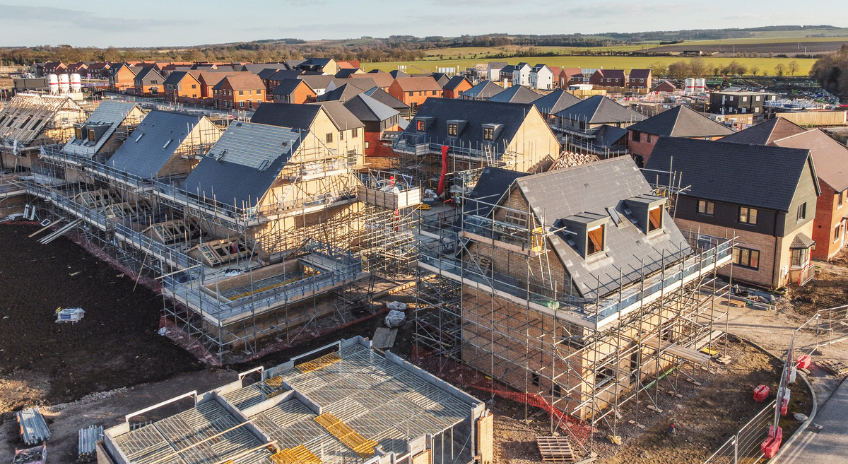
Places, People and Planning – A Consultation on the Future of the Scottish Planning System
Date: 10/01/2017 | Construction, Planning, Real Estate
On 10th January, 2017, the Scottish Government published the eagerly-awaited consultation on its proposals for improving the planning system. This is part of the ‘root and branch’ review of the planning system which started in September 2015, with the aim of strengthening and improving the planning system while supporting sustainable economic growth.
The consultation paper is available to view online at: http://www.gov.scot/Publications/2017/01/3486
In brief, it sets out 20 proposals for improvements, grouped into 4 areas of proposed change under the following headings:-
1. Making Plans for the Future
- Proposed changes here include removing strategic development plans and increasing the local development plan period to 10 years, rather than the current 5.
- While allocation of a site in a development plan should give more certainty that the proposed development will happen, the Scottish Government has reservations about granting allocated sites planning permission in principle, which was one of the review panel’s suggestions.
2. People Make the System Work
- Under this heading, it is made clear that NO third party right of appeal is proposed. However, to increase ‘local responsibility’, there are proposals to increase the types of developments and consents which cannot be appealed to the Scottish Ministers but can only be reviewed by Local Review Bodies – the hierarchy of developments is to be reviewed to extend the range of ‘local’ developments, there ‘could be scope’ for major developments which accord with the development plan to be treated in the same way, and a wider range of consents could be brought into the ‘delegate and review’ regime.
- A range of further changes are proposed to ‘empower people to decide the future of their places’, including local place plans to be produced by communities and measures to make pre-application consultation more effective and meaningful.
3. Building More Homes and Delivering Infrastructure
Headlines here include:-
- A statement that Ministers will consult with stakeholders on whether a development land tax approach could help tackle ‘land banking’, requiring sites either to be ‘released’ or a tax paid.
- Local planning authorities are to take on a more active role in securing the delivery of homes, with a series of suggestions outlined.
- There is reference to proposals elsewhere, as part of the wider land reform agenda, to give local authorities more ‘confidence and tools’ to acquire land which has been allocated, but is not being used, as well as vacant and derelict land generally.
- More positively, there is a recognition that the current system of establishing housing numbers is flawed, with general support for the NPF to have an increased role and various delivery options to be consulted upon.
- Simplified Planning Zones are to be re-branded and used to help deliver more housing, although the development sector will be expected contribute to the costs of scheme preparation work.
- In terms of infrastructure delivery, the proposed Planning Bill will include an enabling power to bring in an infrastructure levy. A national infrastructure and development delivery group is to be established involving the Scottish Government and its agencies , public and private sector providers and the SFT to work together with local government and the development industry on infrastructure delivery, including developing detailed proposals for the infrastructure levy.
- The infrastructure levy will not replace site specific contributions aimed at mitigating impacts of specific developments and secured through Section 75 planning obligations. Changes to the Section 75 obligation system will be considered, including restricting the developer’s right to seek the modification or discharge of obligations.
4. Stronger Leadership and Smarter Resourcing
- Planning is to be re-established as a ‘visionary profession’ through improved leadership, skills development and sharing of services among others.
- The need for better resourcing is recognised, with a long list of additional charges to be imposed on developers including not only the increased planning application fees which are currently being consulted upon but also higher fees for retrospective applications and applications for non-allocated sites, fees for both appeals and local reviews and discretionary charging, including for pre-application discussions and several more.
- Higher fees must be accompanied by a much improved service, with better monitoring and performance management to help deliver this. The penalty clause in the Regulatory Reform Act will not be implemented at this point, although it won’t be removed either.
- To increase efficiency, permitted development rights may be extended, validation requirements will be standardised and research will be commissioned on aligning consents procedures.
The consultation should be responded to via the Scottish Government’s consultation platform, Citizen Space, or by submitting a Respondent Information Form and closes on Tuesday 4 April 2017.



















































































